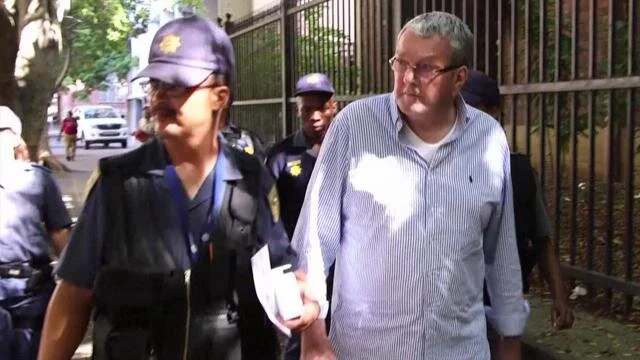By: Rosalie Dieleman & Emma Bakkum, Research Associates, PILPG-NL
On 21 April 2017, the court of appeal of Den Bosch convicted 74 years’ old Dutch businessman Guus Kouwenhoven for illegal trade in weapons and complicity in war crimes in Liberia and Guinea between 2000 and 2003. He is sentenced to 19 years of imprisonment. Kouwenhoven, in his position as Director of Operation of the Oriental Timber Company (OTC) and of the Royal Timber Company (RTC) had a close relationship with former Liberian president Charles Taylor. An investigation into his activities was launched in February 2004. Kouwenhoven was accused of complicity in war crimes and weapons trade in violation of the UN embargo in place at the time.
On 21 April 2017, the court of appeal in Den Bosch sentenced Kouwenhoven to 19 years of imprisonment for complicity in war crimes in Liberia and Guinea between 2000 and 2003 as well as illegal arms trade. The court of appeal considered the facts proven, as consistent and reliable evidence was established as a result of additional investigation and witness hearings. Furthermore, with regards to sentencing, the court of appeal noted that it took into account that the crimes committed concern “very serious violations of the principles of humanitarian law” and that the suspect played “an important supporting role” in these violations. With the sentencing decision, the court intends to signal the court’s judgement of the gravity of the crimes to the victims and their families, as well as the international legal community. The sentencing aim of general prevention is given special attention by the court, noting that “businessmen like the suspect, who trade internationally and do not shy away to do so in cooperation with regimes like that of Charles Taylor, should be warned that they can get involved in (international) crimes (against humanity)”.
Kouwenhoven is the second Dutch businessman to be convicted for complicity in war crimes, following the conviction of Frans van Anraat in 2007. Van Anraat was convicted by the Supreme Court of the Netherlands for complicity in war crimes by delivering chemicals used for the production of mustard gas to the government of Sadam Hussein in Iraq.
Kouwenhoven has, to date, denied involvement in the crimes and is deliberating whether to file an appeal to the judgment. Kouwenhoven’s lawyer, Inez Weski, already expressed her intent to start a procedure at the European Court of Human Rights. She argues that, due to Kouwenhoven’s detoriating health, detention would be a violation of the duty of care of the Netherlands as laid down in the European Convention for Human Rights.
The judgment of the court of appeals in April 2017 followed a lengthy procedure before the Dutch courts. In 2006, the district court of The Hague convicted Kouwenhoven for illegal arms trade. He was, however, acquitted for complicity in war crimes due to lack of evidence. Both the prosecution and defense appealed. In 2008, the court of appeal in The Hague acquitted Kouwenhoven of all counts, due to the unreliability of several witness statements resulting in a lack of evidence. In 2010, however, the Supreme Court quashed this judgment and determined that the public prosecution’s office had unjustly not been given the opportunity to hear two anonymous witnesses. The Supreme Court referred the case back to the court of appeal in Den Bosch, where the case was reopened on 6 February 2017.
This judgment was the second judgment in April 2017 in an international crimes case in the Netherlands, on 4 April 2017, the Supreme Court of the Netherlands came to a final judgment in the criminal proceedings against five Dutch nationals involved in the Liberation Tigers of Tamil Eelam (LTTE).

